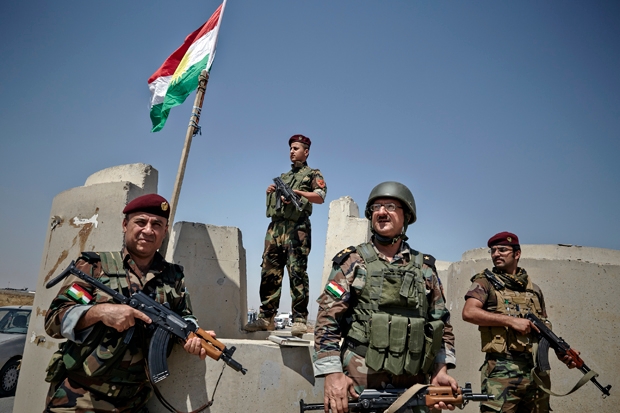[audioplayer src=”http://traffic.libsyn.com/spectator/TheViewFrom22_19_June_2014.mp3″ title=”James Forsyth and Isabel Hardman discuss the death of Westminster hawks” startat=726]
Listen
[/audioplayer]There is a slight whiff of the summer of 1914 to Westminster at the moment. The garden party season is in full swing and the chatter is all about who is up and who is down. In the Commons chamber itself, domestic political argument dominates. You would not know that a vicious sectarian war is raging in the Middle East. At the first Prime Minister’s Questions after the fall of Mosul to the terrorist group ISIS, no one asked David Cameron to explain the government’s policy on Iraq.
The situation in Iraq is dire on both a humanitarian and a strategic level. ISIS, an organisation so extreme that even al-Qa’eda criticises its tactics, gleefully posts pictures of the mass graves of the Shi’ite soldiers that it has slaughtered. It is opposed by an Iraqi government that is increasingly sectarian and has invited an Iranian Revolutionary Guard commander to Baghdad to oversee the defence of the capital. Whatever happens, one of the West’s great strategic fears will come to pass. Either terrorists will obtain a base in the heart of the Middle East or Iraq will become an Iranian client state.
Despite this, there is no rush to action in Whitehall. No one is trying to shake Washington out of its strategic torpor. Instead, the government’s priority is hosing down any suggestion of British military involvement.
To be fair, this caution is politically understandable. A British prime minister who suggested getting involved in Iraq again would be putting his own position in grave peril. The House of Commons has already made clear that it is not interested in the current conflict gripping the Middle East; last summer it voted down a proposal to seek UN authorisation for strikes against those who had used chemical weapons in Syria.









Comments
Join the debate for just £1 a month
Be part of the conversation with other Spectator readers by getting your first three months for £3.
UNLOCK ACCESS Just £1 a monthAlready a subscriber? Log in